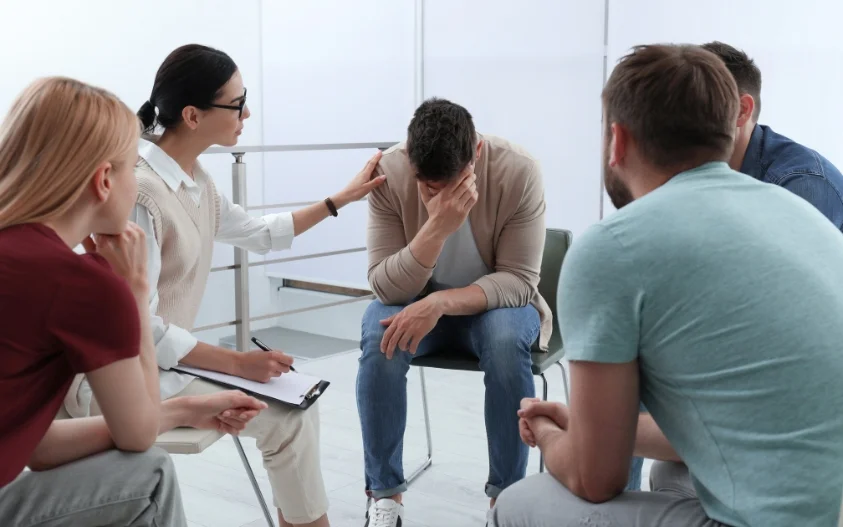24/7 Helpline:
(866) 899-221924/7 Helpline:
(866) 899-2219
Learn more about PTSD Treatment centers in Johnson County

Other Insurance Options

American Behavioral

Evernorth

WellCare Health Plans

Magellan Health

Ambetter

Private insurance

WellPoint

Providence

Group Health Incorporated

Humana

Coventry Health Care

Horizon Healthcare Service

Lucent

Sutter

Meritain

Regence

United Health Care

Health Net

Sliding scale payment assistance

UMR







































